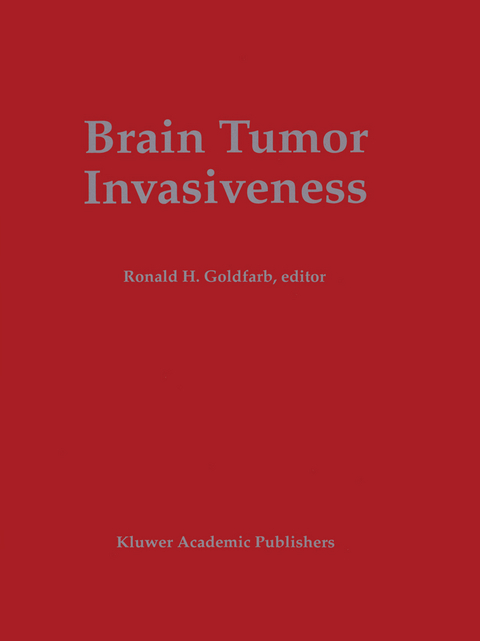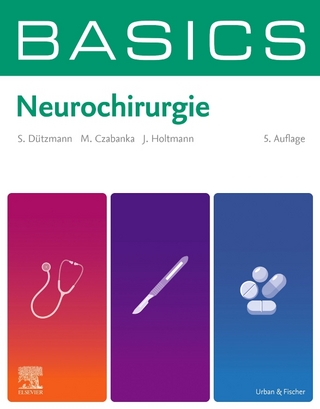
Brain Tumor Invasiveness
Seiten
1994
|
Reprinted from JOURNAL OF NEURO-ONCOLOGY, 18:2
Springer (Verlag)
978-0-7923-2791-2 (ISBN)
Springer (Verlag)
978-0-7923-2791-2 (ISBN)
It is widely appreciated that the pathophysiology of advanced brain cancer is intimately related to the extent of tumor invasiveness. A prerequisite for comprehensively understanding neuro-oncology is therefore the elucidation of the biochemical and molecular properties of tumor cells that contribute to their invasiveness. An understanding of tumor invasion for central nervous system tumors is crucial since malignant brain tumors are very highly invasive and extensively destroy adjacent neural brain tissue. Moreover, they are angiogenesis-dependent and lead to the death of patients by expanding within the limited space of the cranium. As more specific insights are gained towards a full understanding of the complex process of tumor invasiveness of brain tumor cells, it should be possible to design strategies for the early diagnosis and treatment of invasive, advanced brain tumors. There is therefore an urgent need to better understand the cellular properties of brain tumor cells responsible for invasiveness.
This special issue of the JOURNAL OF NEURO-ONCOLOGY provides a state-of-the-art review of the general understanding of the process of tumor invasion. In addition, the articles emphasize specific aspects of aggressive brain cancers which are particularly important for deriving new insights for therapeutic approaches for advanced brain cancer that will target tumor invasiveness. The ideas discussed will stimulate further studies directed towards the translation of these important invasion-related studies to clinical approaches for the effective treatment of brain cancer.
This special issue of the JOURNAL OF NEURO-ONCOLOGY provides a state-of-the-art review of the general understanding of the process of tumor invasion. In addition, the articles emphasize specific aspects of aggressive brain cancers which are particularly important for deriving new insights for therapeutic approaches for advanced brain cancer that will target tumor invasiveness. The ideas discussed will stimulate further studies directed towards the translation of these important invasion-related studies to clinical approaches for the effective treatment of brain cancer.
Tumor invasion, proteolysis, and angiogenesis.- Matrix degrading metalloproteinases.- Tumoral invasion in the central nervous system.- The role of tissue inhibitor of metalloproteinase-1 in specific aspects of cancer progression and reproduction.- Role of plasminogen activator and of 92-KDa type IV collagenase in glioblastoma invasion using an in vitro matrigel model.- Malignant melanoma metastasis to brain: role of degradative enzymes and responses to paracrine growth factors.- Migration of fresh human malignant astrocytoma cells into hydrated gel wafers in vitro.- Comparative aspects of neoplastic invasion of the brain.
| Erscheint lt. Verlag | 31.10.1994 |
|---|---|
| Zusatzinfo | VIII, 82 p. |
| Verlagsort | Dordrecht |
| Sprache | englisch |
| Maße | 210 x 279 mm |
| Themenwelt | Medizinische Fachgebiete ► Chirurgie ► Neurochirurgie |
| Medizin / Pharmazie ► Medizinische Fachgebiete ► Onkologie | |
| ISBN-10 | 0-7923-2791-8 / 0792327918 |
| ISBN-13 | 978-0-7923-2791-2 / 9780792327912 |
| Zustand | Neuware |
| Haben Sie eine Frage zum Produkt? |
Mehr entdecken
aus dem Bereich
aus dem Bereich
Buch | Hardcover (2024)
De Gruyter (Verlag)
CHF 153,90
Buch | Hardcover (2023)
Springer (Verlag)
CHF 307,95


